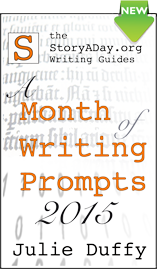Yes, it is possible to write a story in as few as 140 characters, but you’ll have to let the reader do some of the work…
The Prompt
Write a story in 140 characters
Tips
- 140 characters means just that: every space, every punctuation mark, each one counts.
- If your character is a product of the pre-smartphone era and you want to use ‘text speak’, you can (e.g. Ur gr8!). Personally I never felt the need for that, and have learned to be extremely concise (believe it or not) when I have to be.
- You can write a single story over a series of Tweets.
- Stories written this way are gimmicky and often end with a punch, but it’s an interesting experience (not to mention a way to tick the ‘story done’ box on an otherwise busy day).
- Don’t expect to come up with a refine a 140 character story quickly. You can, however, do it in fragments during a busy day. Keep refining it until you’re happy.
- Super-short stories like this work well when they have a strong voice.
- Use some of the features of haiku: juxtapose a small thing with a large thing (object, concern, sight); make a surprising or insightful observation about a common occurrence; use the language at the end to echo the language at the beginning, giving it a feeling of circularity or completion; be impressionistic or surreal or dreamlike; leave a lot to the imagination.
- If you post a story as a five-part series on Twitter, put 1/5, 2/5, 3/5 etc at the end of each episode, so that readers know there is more coming.
- If you’re posting your story to Twitter, make it a little shorter and use the hashtag #StADa so we can find it!
GO!
Post a comment at the blog to let us know you’ve written today, or join the community and post in the Victory Dance Group.



 About Gregory Frost
About Gregory Frost
 About Phil Guinta
About Phil Guinta About Meg Wolfe
About Meg Wolfe About Joe R. Lansdale
About Joe R. Lansdale
 The Prompt
The Prompt

